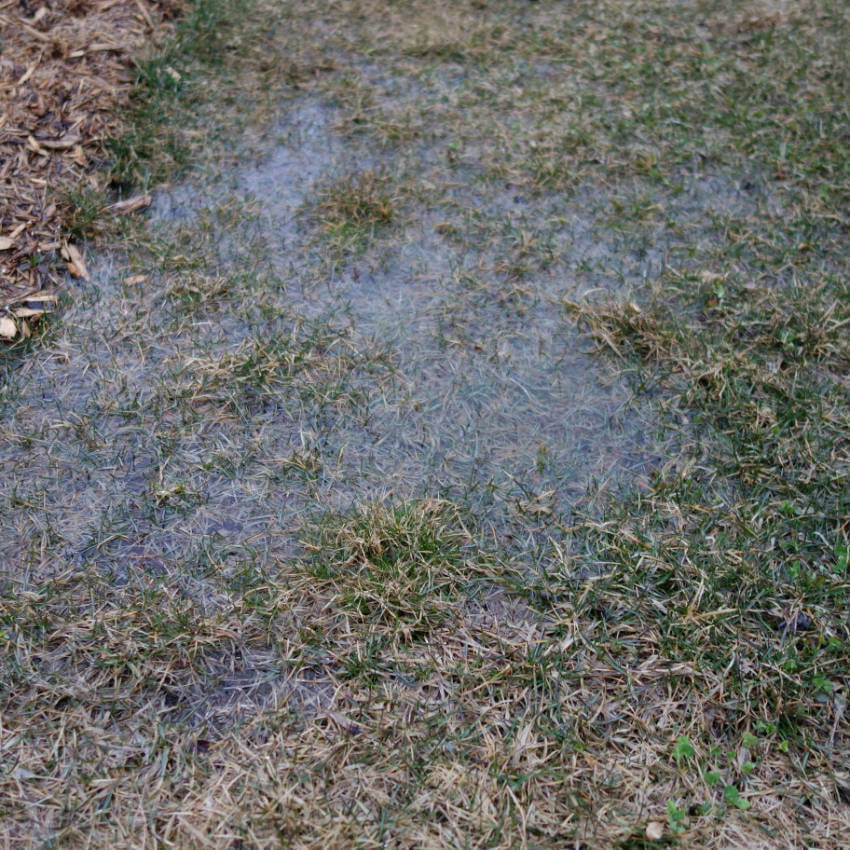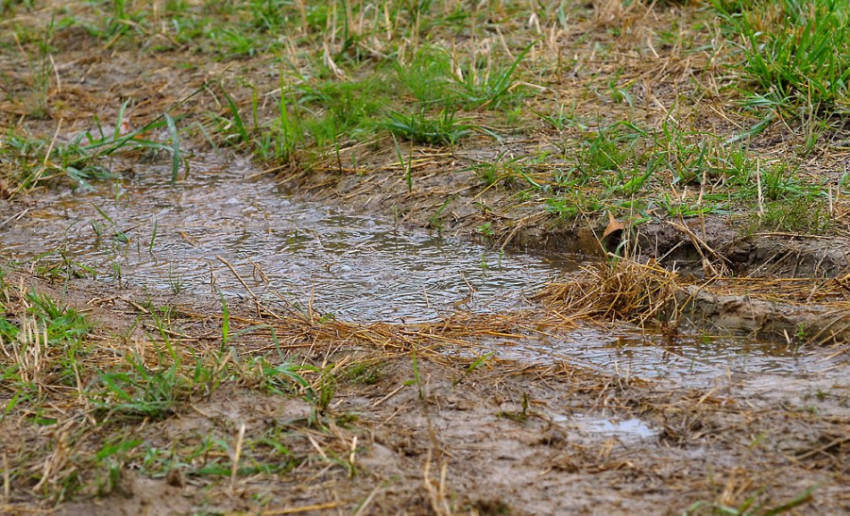There’s nothing more satisfying than taking a look at a green, healthy lawn. However, it’s very common to see it struggling with some issues this time of the year - in particular: pooling water in the yard after it rains.
Standing water in the yard can cause a lot of headache for a homeowner, bringing problems such as:
- Killing the grass
- Damaging ornamental plants
- Compromising the house’s foundation
- Attracting mosquitoes
So, what should you do about pooling water in the garden?

First of all,
Be sure you’re not over watering the lawn. Whether you do it yourself or if you have an automatic irrigation system, try making some adjustments and watering less frequent.
If that doesn’t solve the problem, you’ll need to dig deeper to find out what’s causing this standing water situation.
Fortunately, we’ve put together the six main reasons water is pooling in your yard and even better: what to do about it!
“We should not give up and we should not allow the problem to defeat us.” - A. P. J. Abdul Kalam
Grading

Saying a lawn is graded is the same as saying it is leveled. When grading is okay, it should be draining properly. However, if there’s any problems with your landscaping angle, water will gather faster than it can drain - the idea is that your land should be higher at the base of the house and lower at the edges of the property.
Solution
Re-grading the lawn is the best alternative here. And it’s no easy task! Contact a professional landscaper to get a lawn survey, allowing you to know where are the low-lying points, natural channels, and drainage outlets.
Permeability (Thatch)

Thatch is what we call the organic debris on your lawn, including (both living and dead):
- Grass clippings
- Leaves
- Roots
- Shoots
- Stems
Among other possible organic matters. The lawn’s permeability is what allows the water to drain instead of accumulating on the surface. If there’s thatch on your lawn, your drainage will be affected.
Solution
The solution here is given in two parts:
- Remove the layer of thatch
- Aerate your lawn
You can do that first step with a mower, a rake, a dethatcher, or by calling a professional landscaper. The aerating part can be done by simply making small holes in the soil (4 inches deep, 2 inches apart) - it’ll also make your lawn healthier.
Soil Problems

Drainage also depends on the type of soil you have in your yard. For example, if you have a soil that’s been injured by heavy clay, or compact soil, they’ll be less absorbent. If you’re not sure about the type you have or if you really don’t know, a landscaping pro can help you find out.
Solution
The solution is quite simple for soil problems, you just need to work with organic matter. This includes:
- Garden compost
- Leaf mold
- Manure
These matters help create channels that allow water to escape and be drained into your lawn.
Hardpan

Do you know what is hardpan? Basically, it means a thick layer of impervious subsoil. This layer can’t filter water, so if water goes there, it’ll have nowhere else to go - hence, it will pool in your yard.
Solution
You can try to deal with hardpan yourself, that is: it it’s less than 2 feet thick, you can break it up by digging with a shovel. Though, in order to that, you’ll need to wait for a long period without rain.
Of course,
If you don’t want to go through that trouble or if the hardpan is more than 2 feet thick and can’t be broken with a simple shovel:
Prices will vary according to your location, in Decatur, AL, for example, it’s cheaper to get a lawn service done than in Des Moines, IA.
The only way to get the best estimate is by calling a local professional.
Higher Water Table

If you dig down enough anywhere in your lawn, you’ll find ground water. When that water table is closer to the surface, it can lead to drainage issues and a reason why water is pooling in your yard. After it rains, there’s nowhere water can go.
Solution
It may be harder to deal with this problem, but here are a couple of options:
- Install raised plant beds
- Lower the borders of your lawn
- Grow plants with shallow roots
To know which is the best choice for you, talk to a pro on the subject.
Drainage is Being Blocked by your Fence

Have you recently installed a new fence around your home’s perimeter? That could be a cause of improper water drainage too. Maybe it was built in a way that blocks the natural drainage of your yard.
Solution
You could follow two directions, either to reinstall your fence with professional help to fix the drainage issues; or install a french drain.
Why a french drain?
French drains are a quite popular choice. It’s actually a trench filled with gravel or rock that redirects water away from your house. It’s a great alternative to prevent from having to open ditches or storm sewers to deal with pooling water.
Have you found your yard’s problem yet? Get a free quote from a professional service!
More from homeyou:
- 5 Warning Signs Your Gutters Are Trying to Tell You
- How to Prevent Frozen Pipes During Winter
- Here’s How to Know if You Need Your Water Heater Flushed